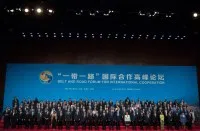Andrew Brunson is described by Washington officials as a Christian pastor who has been arrested, detained and in the process of being tried in Turkey for a crime he “did not commit”. Turkish prosecutors insist that Brunson was engaged in collaboration with FETO, the terrorist organisation responsible for the 2016 attempted coup against the legitimate Turkish government. However, instead of waiting for a judge to determine the guilt or innocence of Brunson, the US is demanding his unilateral release, even though Turkey has offered to swap Brunson for the FETO leader Fethullah Gulen who continues to live as a free man in the United States in spite of orchestrating terrorist acts against a fellow NATO member.
After Turkey agreed to remove Brunson from a prison to house arrest conditions, the US demands became even more furious with Donald Trump Tweeting a threat of sanctions against Ankara over the matter.
The United States will impose large sanctions on Turkey for their long time detainment of Pastor Andrew Brunson, a great Christian, family man and wonderful human being. He is suffering greatly. This innocent man of faith should be released immediately!
— Donald J. Trump (@realDonaldTrump) July 26, 2018
The fact is that the US has been threatening sanctions against Turkey throughout 2018 for a variety of reasons ranging from the insulting to the absurd.
The F-35 deal
Not only did the US threaten to cancel the long planned transfer of F-35 jets to Turkey due to Turkey’s desire to finalise a deal with Russia for the purchase of the S-4000 missile defence systems (systems incapable of being used as offensive weapons), but the US also threatened to sanction Turkey over the matter.
While countries including India also faced the threat of sanctions over buying Russian weapons, unlike New Delhi, Ankara has been fully consistent in stating that the threat of such sanctions simply for doing security deals with Russia is not befitting of the behaviour of a long time partner. Turkey has remained firm that in pursuing an independent foreign policy which aims at good relations with both Russia and the US, there is no danger of any party’s interests being compromised.
Turkey later said to the US that no Russian military advisers would train Turkish military personnel on using the S-400 on Turkish soil and that further more, Turkey intends to manufacture Russian designed missile defence systems on its own soil in the future. Thus, there was simply no way that somehow Russia could be in close proximity to Turkey’s other NATO hardware.
Here, Turkey proposed a win-win situation and consequently, the US looked for new means of provoking Turkey.
The PKK
The US has long fought beside the YPG, the Syrian based branch of the PKK terror group in northern Syria. While the US continues to list the PKK as a terrorist body, it had no reservations about arming, funding and fighting beside the group near Turkey’s southern borders.
In spite of this danger, Turkey offered to compromise on the matter by working with the US to remove the YPG/PKK from the Syrian city of Manbij while both sides made a commitment to rid northern Syria of terrorism collectively in the future.
Here again, Turkey proposed a win-win situation and consequently, the US looked for new means of provoking Turkey.
Israel
Turkey was the first Muslim majority nation to recognise Israel and while relations have recently been downgraded, each country maintains contacts. However, as Turkey’s President Erdogan has continually championed the cause of Palestinian justice, both internal factions in Israel and anti-Turkish forces in the Arab world have conspired to drive Tel Aviv into a more anti-Ankara position.
Given that the Israel lobby in the US remains incredibly influential, it is significant they have now teamed up with traditional Turkish antagonists in the Kurdish, Armenian and Hellenic lobbies in order to create a trans-continental anti-Turkish front that is rapidly gaining traction in the US congress.
While Turkey continues to advocate a two-state solution with East Jerusalem/al-Quds as the Palestinian capital, Turkey is only “guilty” of speaking up on an issue of international concern where Arab leaders and other powerful regional nations have remained silent.
As the US maintains a great deal of military firepower on Turkish soil intended to in part “defend Israel” in the event of a larger war, is the US really going to harm Turkey because its President supports Palestinian freedom and dignity? Only a supremely naive analysis could lead to such a conclusion.
Here, the US could not reasonably justify Erdogan’s position on Palestine as a means of sanctions so the US looked for new means of provoking Turkey.
Iran
Turkey has likewise stated that even when the US re-instates sanctions in Iran in November, this will not impact Turkey’s positive economic relations with its eastern neighbour. Furthermore, Turkey has refused to be bullied by so-called second party sanctions as it relates to Iran any more than is the case regarding Russia.
The US may well have its hand full in November when it comes to nations throughout the world continuing to do business with Iran in spite of the threat of US sanctions on any nation who continues to transact with Tehran.
If the countries that thus far have said that they will continue to transact with Iran including China, Germany, Russia, France, Britain, India, the EU as a whole and others continue to do so, is the US really going to put new sanctions on all of them, especially considering that some of these countries are close US allies?
Here, the US is at least for now going back to the drawing board when it comes to looking for new excuses to sanction Turkey.
Why does the US want to sanction Turkey?
All of the aforementioned factors indicate that Turkey is a modern non-aligned nation that is not subservient to any bloc or foreign power. As a country with a rapidly growing economy and strong military, the US is clearly afraid that a country it could once “rely on” is becoming self-reliant in terms of foreign affairs and trade in the age of Erdogan.
Because of this, Andrew Brunson, a man of no real geopolitical concern has become the latest excuse the US is invoking in order to threaten sanctions against Turkey.
The fact is that many Americans visit Turkey for a variety of reasons all the time and the vast majority of these visits have nothing to do with international news. If the US had some agenda to persecute Americans in Turkey, this situation would be self-evidently different.
The fact of the matter is that the nation that continues to hold prisoners without change at Guantanamo Bay, some of whom have been in US custody for over fifteen years, sees fit to lecture Turkey which is providing the accused with a full and by all accounts fair trial.
This really isn’t about Andrew Brunson at all - it is about America’s anger that Turkey has a president who puts Turkey first rather than America first. One would think that Donald Trump could relate, after all, Recep Tayyip Erdogan has never asked Donald Trump to put Turkey first.
As it stands, Turkey’s Foreign Minister Mevlut Cavusoglu has already rejected Trump’s ultimatum.
Noone dictates Turkey. We will never tolerate threats from anybody. Rule of law is for everyone; no exception.
— Mevlüt Çavuşoğlu (@MevlutCavusoglu) July 26, 2018




